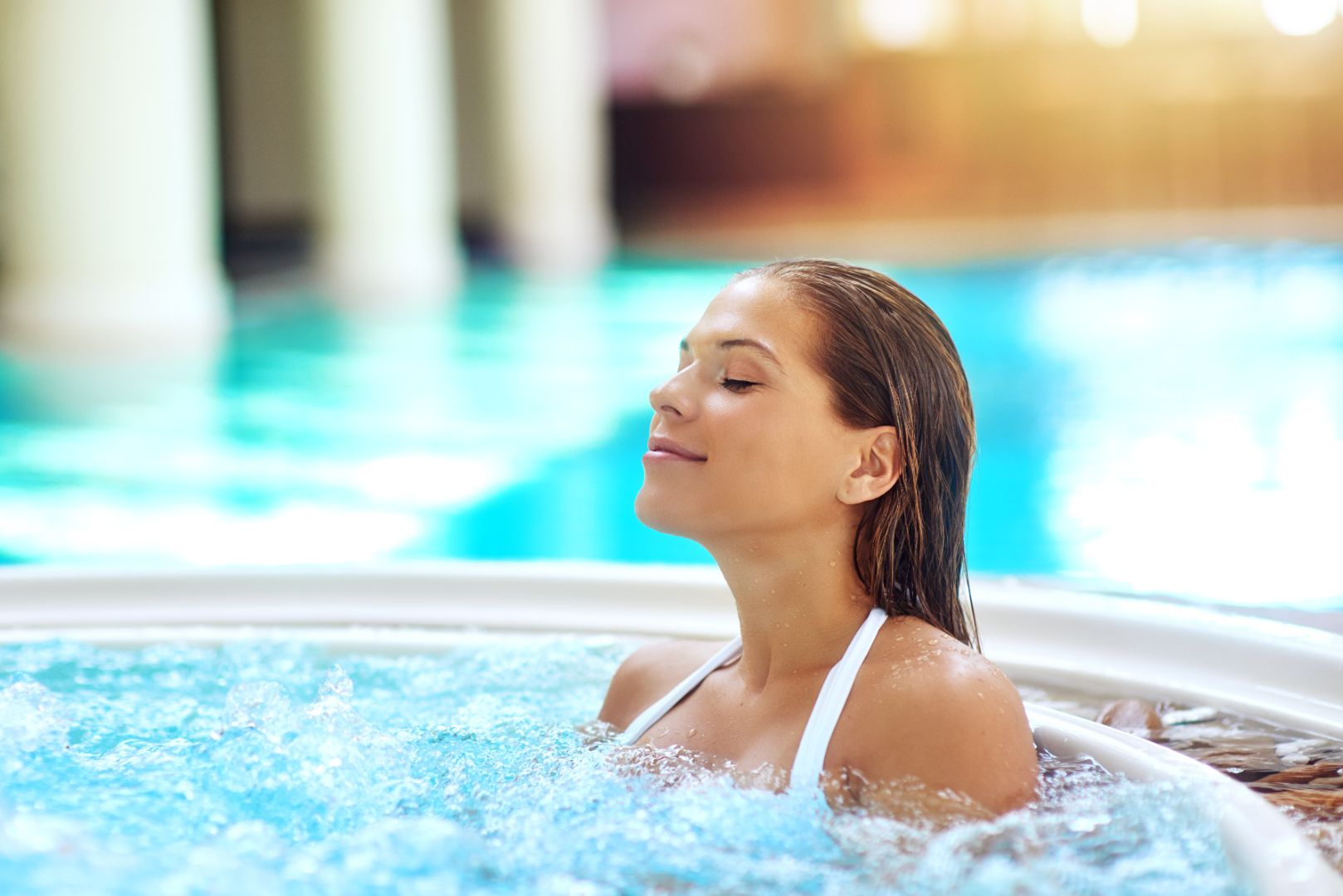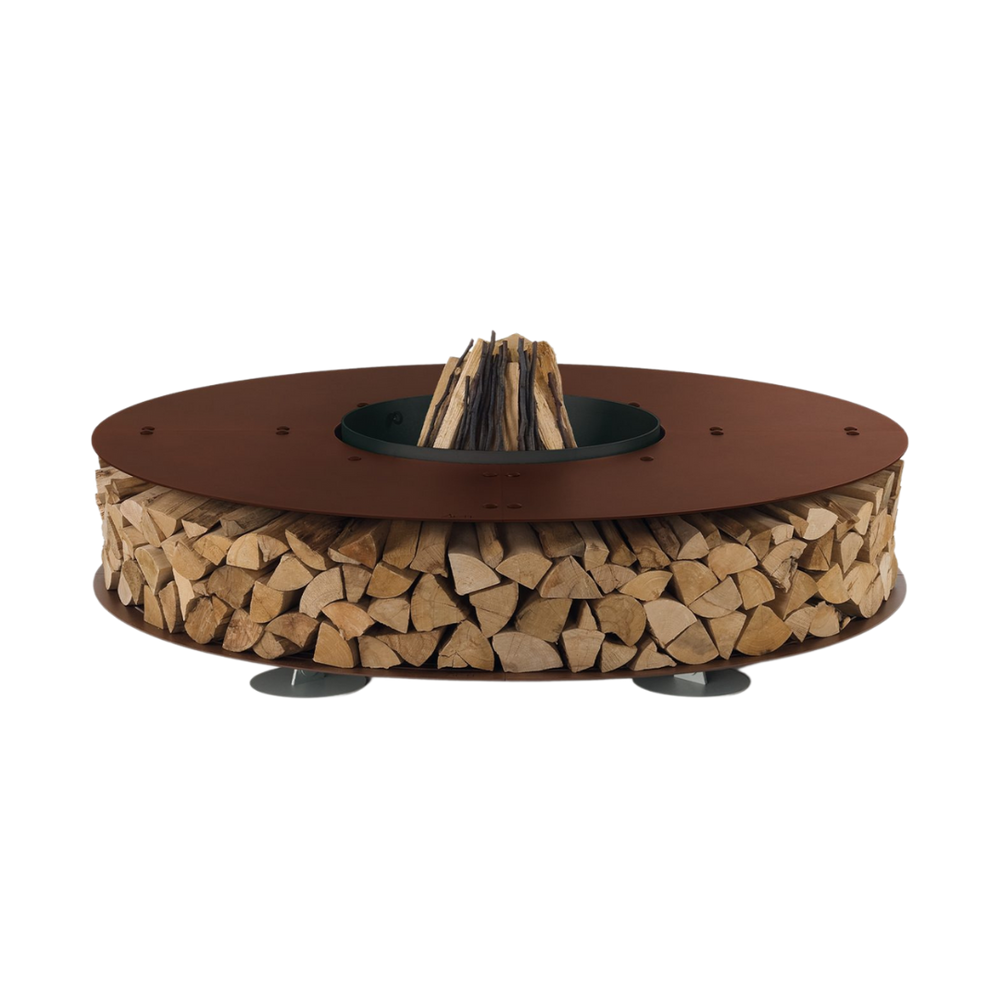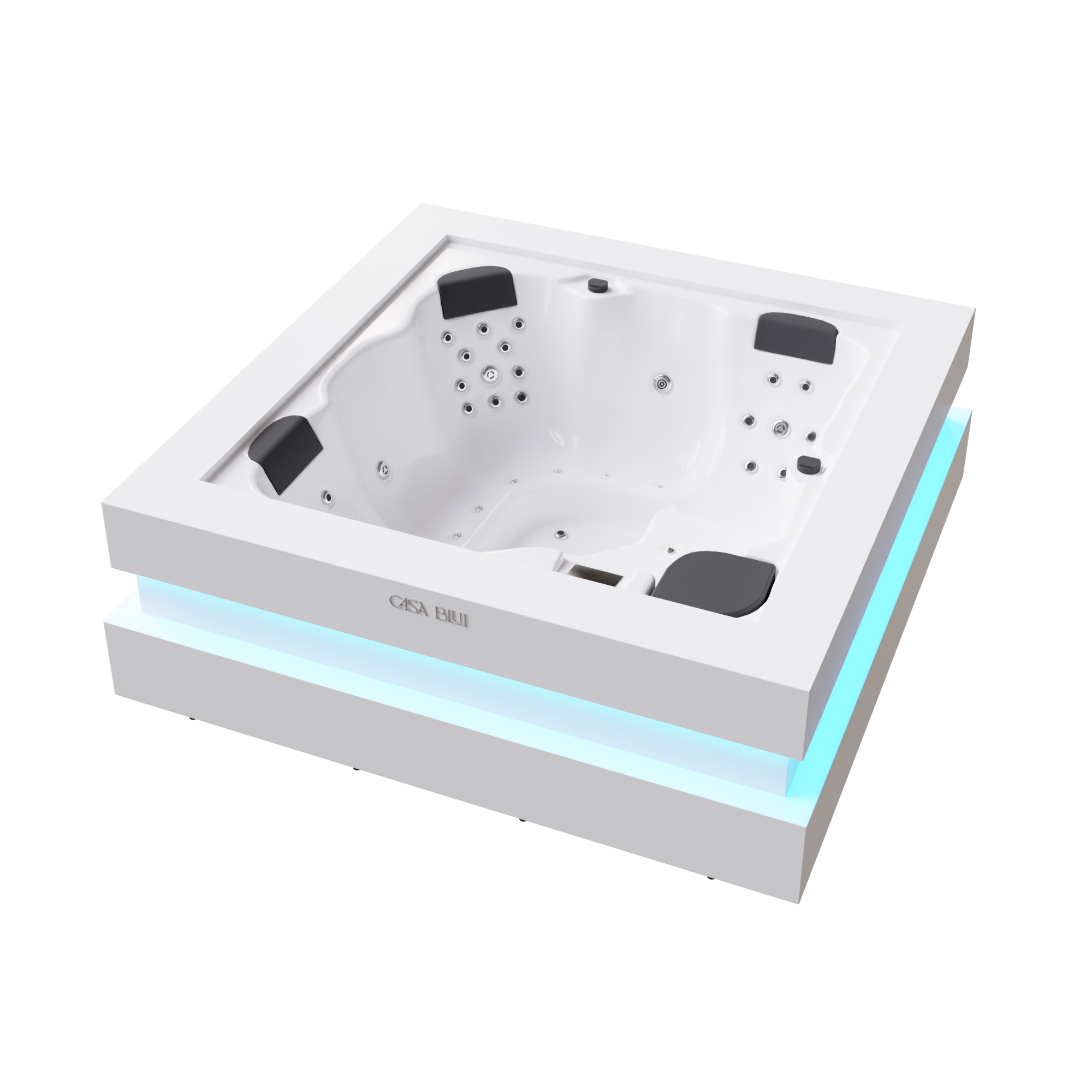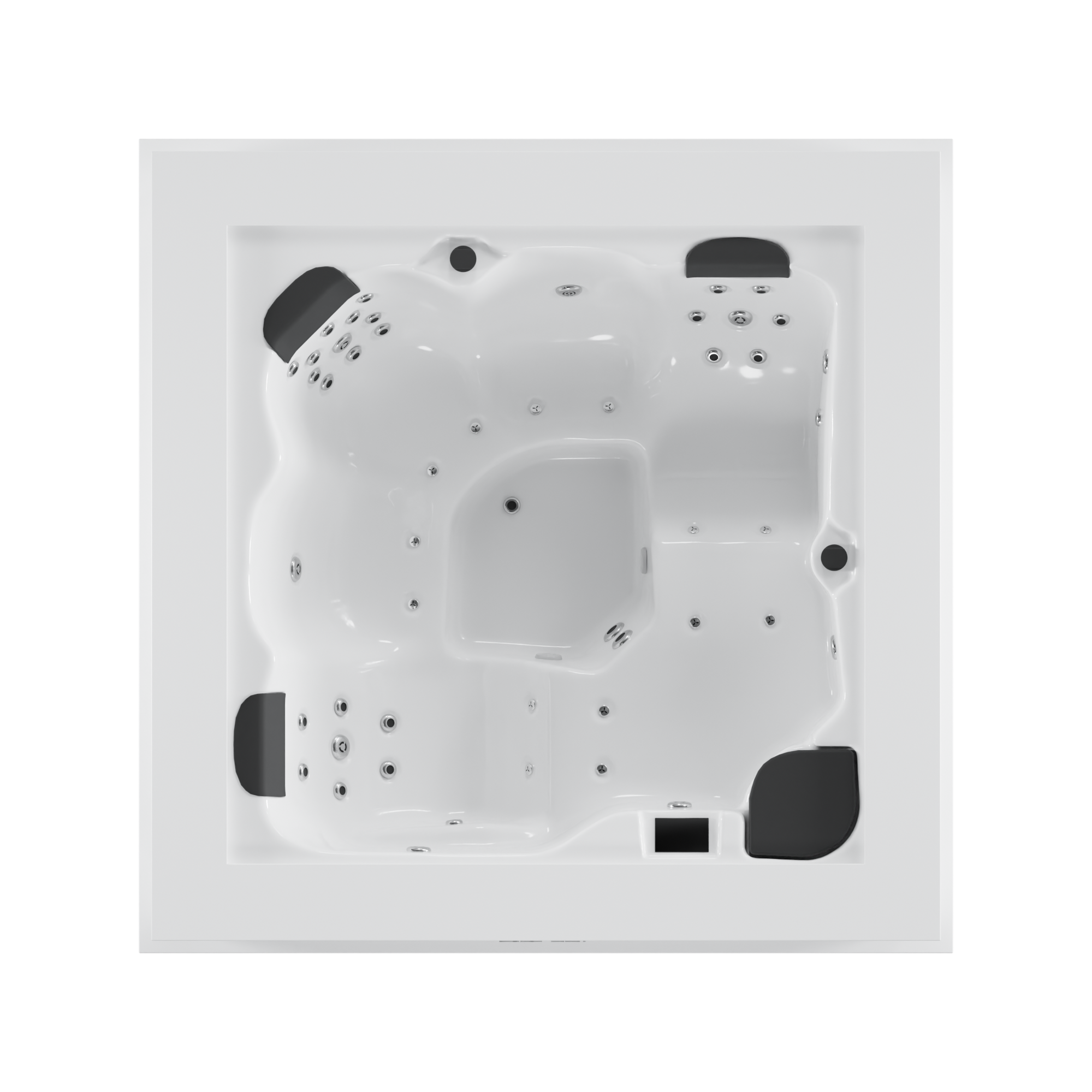Casa Blui Blog
How Hot Tubs Improve Muscle Soreness & Joint Pain
By andrei newman

Are you tired of dealing with muscle and joint pain daily? If so, you're not alone. Many people suffer from chronic pain, whether it's due to a medical condition, an injury, or simply the wear and tear of everyday life. The good news is there’s a practical solution that can provide you with much-needed relief: a home hot tub.
The hot water helps to increase blood flow to your muscles, which helps relax them and reduce inflammation. This increased blood flow also flushes toxins from your muscles, further aiding your recovery.
Let’s explore more ways in which this kind of heat therapy can provide you with relief from your muscle and joint pain.
How Hot Tubs Alleviate Muscle Pain
Combining warm water, buoyancy, and massage jets in a hot tub creates a therapeutic environment that reduces discomfort. More specifically, a home spa helps by:
- Reducing muscle soreness: When you immerse your body in warm water, the heat penetrates deep into your muscles, helping you relax and increase blood flow. This brings essential nutrients and oxygen to the muscles, aiding their recovery.
- Promoting the release of endorphins: The combination of heat, buoyancy, and massage in a hot tub encourages the release of endorphins, which are your body’s natural painkillers.
- Assisting with muscle recovery: Improved blood flow aids in the removal of metabolic waste products from the muscles. As a result, your muscles can recover more quickly and effectively, reducing your overall recovery time between workouts.
- Encouraging relaxation: Your muscles can become tight and tired after intense physical activity, such as exercise or sports. Heat therapy, however, relaxes your muscles, removing that tension.
- Preventing stiffness: By reducing inflammation, hydrotherapy can assist in preventing delayed-onset muscle soreness (DOMS), the muscle pain and stiffness that typically occurs 24 to 48 hours after intense exercise.
The Benefits of Joint Pain & Arthritis
If you have arthritis, you can use hydrotherapy to treat your condition effectively. The warm water in a hot tub helps reduce the pressure on your joints, relieving pain and stiffness. This could allow you to engage in activities with less discomfort, and it could even improve your range of motion and flexibility.
Additionally, the weightless environment is conducive if you experience pain when participating in weight-bearing activities. By taking the weight off your joints, hot tubs provide a safe and comfortable space for low-impact exercise and movement.
Enhanced Physical Recovery
Hot tubs relieve muscle and joint pain and can play a crucial role in rehabilitating athletic injuries.
Heat therapy increases blood flow to your injured area, delivering vital nutrients and oxygen essential for recovery. This helps your body remove metabolic waste, reduce inflammation, and repair damaged tissues. Being in a state of relaxation is also helpful for the healing process. When you’re relaxed and unstressed, your body can focus its energy on repair. In turn, this contributes to faster recovery times.
Additionally, reducing the weight-bearing impact on your injured area allows for gentle movement and exercise without placing excessive strain on your body. This can be particularly beneficial if you’re recovering from joint or muscle injuries, as it enables you to perform therapeutic movements to strengthen the affected area without risking further strain.
Circulatory Health
The warm water in hot tubs helps dilate your blood vessels, improving blood flow. This impact on your circulatory health includes:
- Improved nutrient delivery: The enhanced blood flow allows for better delivery of essential nutrients and oxygen to the muscles and tissues, assisting in their repair.
- Toxin removal: The increased blood circulation helps flush metabolic waste products and toxins from the body.
- Cardiovascular conditioning: The improved blood circulation stimulates the heart, promoting its efficiency and overall cardiovascular conditioning.
Stress Relief
Hot tubs provide an ideal environment for stress relief. The warm water helps to relax the mind, promoting a sense of calm and relaxation. The buoyancy of the water further enhances muscle relaxation, while the targeted water jets provide a gentle and soothing massage.
All these things can have a positive impact on your mental well-being. It’s no wonder many people choose to soak in hot tubs to help reduce their anxiety, improve their sleep quality, and boost their overall mental health.
Safety Considerations
Understanding and following proper safety considerations will ensure a safe and enjoyable hot tub experience. Keep these hot tub safety guidelines in mind whether you’re using one at your residence or adding a hot tub to your Airbnb property:
-
Maintain the appropriate water temperature. The Consumer Product Safety Commission (CPSC) recommends keeping the water temperature at or below 104°F (40°C). Higher temperatures can increase the risk of burns and overheating.
-
Exercise good hygiene and perform regular maintenance. Regularly maintaining your hot tub is crucial to prevent bacteria and algae growth. Follow the manufacturer's guidelines for water treatment and balance (including pH and sanitizer levels), and regularly clean the filters and remove debris.
-
Adhere to time limitations. Spending excessive time in a hot tub can lead to dehydration and overheating. Limit hot tub sessions to 15 to 30 minutes, and take breaks and hydrate with water during and after hot tub use.
-
Keep supervision and accessibility top of mind. Accidents can happen quickly, and constant supervision keeps children and individuals with limited mobility safe. Additionally, make your hot tub accessible with secure handrails or steps to prevent slips and falls.
-
Check for compatibility with your medical conditions. If you have a heart condition or high blood pressure, or if you’re pregnant, consult with a healthcare professional before using a hot tub. Also, hot tub use affects some medications, so discussing this with a doctor or pharmacist is important.
- Put the proper electrical safety measures in place. This includes using a ground fault circuit interrupter (GFCI) to prevent electrical shocks and properly install and maintain all electrical components.
Whether you're seeking relief from sore muscles or arthritis symptoms or looking to enhance your athletic performance or physical recovery, a hot tub offers a natural and effective solution. Consult with a healthcare professional or physical therapist to ensure that hot tub therapy is appropriate for your injury and recovery plan.










